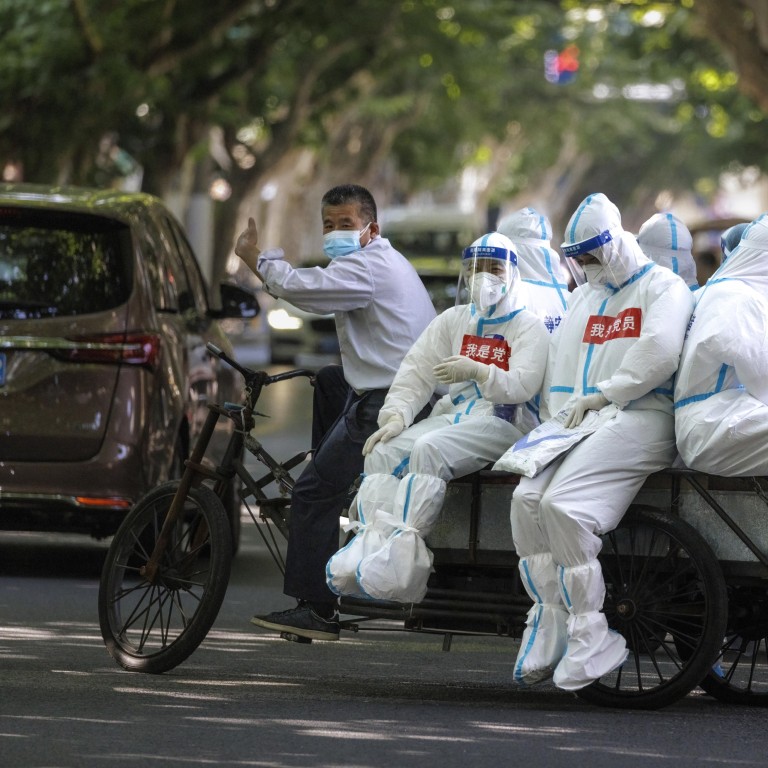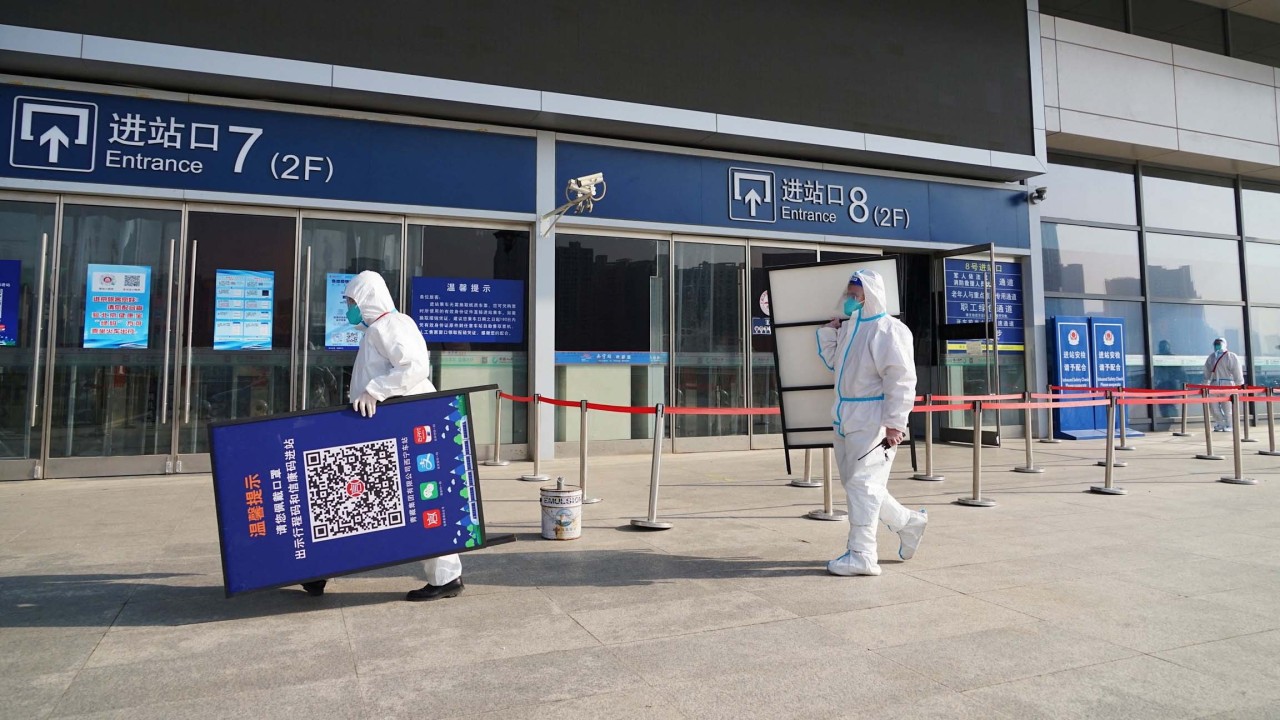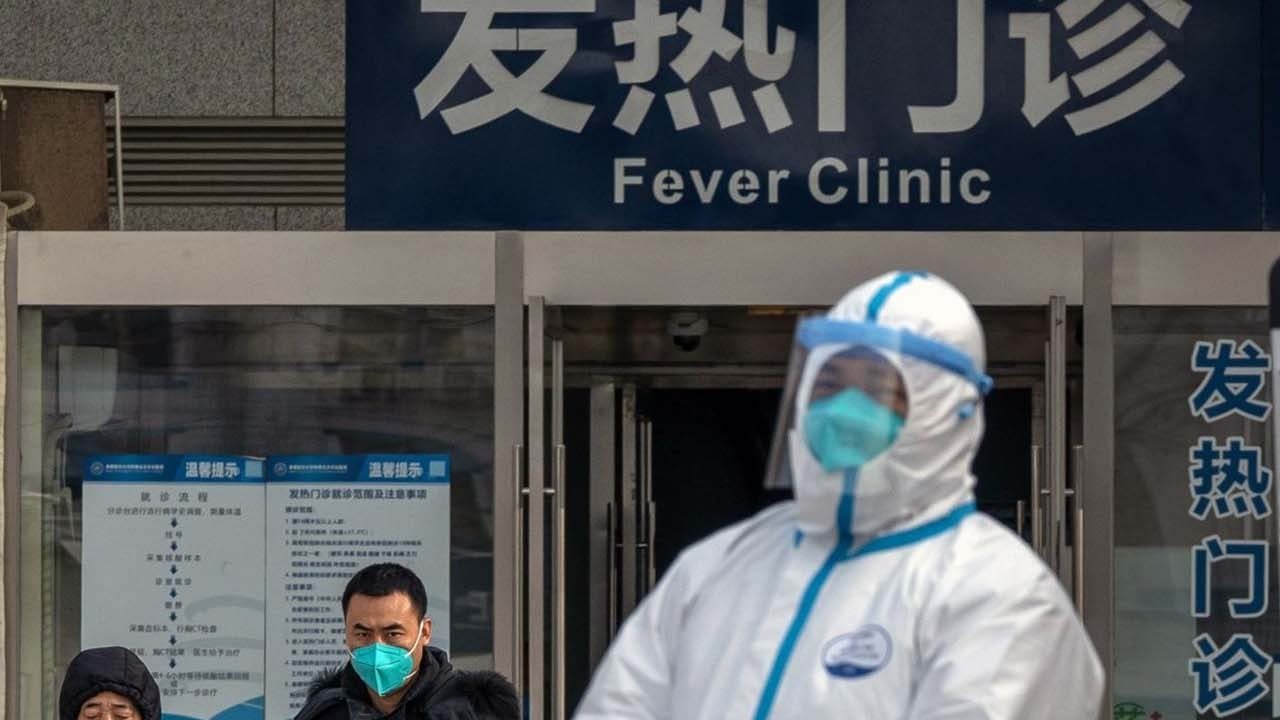
China’s zero-Covid foot soldiers left anxious in role as social ‘buffers’, study finds
- Frontline workers had to meet top-down targets despite lack of agency, while tackling public discontent with zero-Covid, researchers find
- Hierarchical chain of command, intensified workloads and intense pressure on local cadres led to ‘grass- roots fatigue’, study says
The pressure of having to meet top-down targets in the face of public discontent left frontline workers facing what the study called “grass-roots fatigue”.
Zero-Covid protocol at the grass-roots level was led by party officials delegated from their regular roles to aid local pandemic management, while residents’ committees were tasked with monitoring the sick; patrolling entrances to estates under lockdown; achieving centrally set vaccination targets; and distributing essentials like food, water and face masks.
‘Big white’ army on China’s Covid front lines stands ready to take the fall
Often called the da bai or “big white” because of their white hazmat suits or personal protective equipment (PPE) – the health workers were often caught in “an impossible position”, according to the study by Xuan Qin at Shanghai’s Fudan University and Catherine Owen from the University of Exeter in Britain.
For instance, grass-roots cadres were required to meet vaccination targets set by higher authorities, but the National Health Commission ban on mandatory vaccination deprived them of “regulatory legitimacy”.
“The leeway for street-level bureaucrats to adapt or customise decisions from above … [during such times] is very limited,” they concluded.
“The tension between the requirement for comprehensive compliance and the basic need for personal freedom is a result of top-level design, but it is experienced and negotiated at the grass-roots level.”
The grass-roots bodies acted as “buffers between disgruntled citizens and the [Communist] Party’s image”, Xuan and Owen wrote, with one residents’ committee secretary describing his experience as “anxiety-inducing”.
“It’s just hard work, and the psychological pressure is too great. We have indicators for every job, including vaccination, and every residential area has a ranking every day,” the worker was quoted as saying.
“I’m too anxious to sleep at night. Because the city has indicators for the district, the district has indicators for the streets, and the streets have indicators for the residential areas.”
Human cost of China’s zero-Covid policy measured in stress, anxiety
Another said they mobilised others, including party members and volunteers, to help with pandemic control tasks, because “we wouldn’t be able to do it all, even if we never went home”.
“The high costs of resource mobilisation and the hierarchical chain of command – [resulted] in intensified workloads and intense pressure on local cadres, leading to grass-roots fatigue,” according to the study published in the Journal of Chinese Political Science in November.
Getting the public involved in pandemic management was in line with President Xi Jinping’s directive that the community was the “first line of defence” against the coronavirus, but they came under immense pressure when public perception of zero-Covid shifted.
The policy of strict lockdowns, mass testing and centralised quarantine was praised internationally during the early days of the pandemic – with China relatively shielded from the worst of the disease as cases and fatalities rose around the world.
However, criticism surged when the more transmissive Omicron variant spread in top-tier cities like Shanghai, Shenzhen and Hangzhou despite drastic measures limiting movement.
The strictest zero-Covid measures were lifted earlier this month, just days after widespread protests against the excesses of the policy. The Covid-19 contract tracing health app no longer tracks people movement, and all mass testing and lockdowns are at an end.



